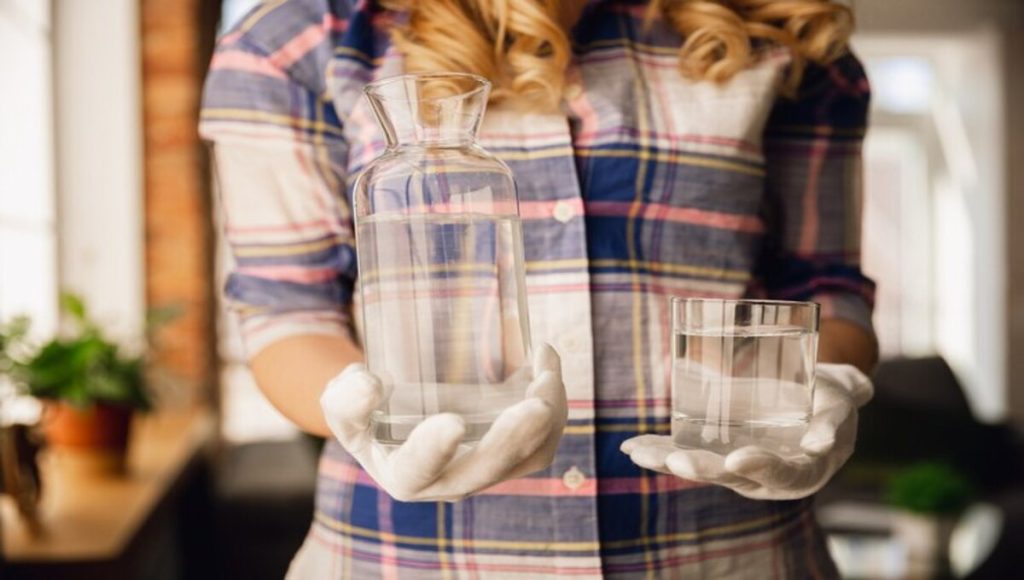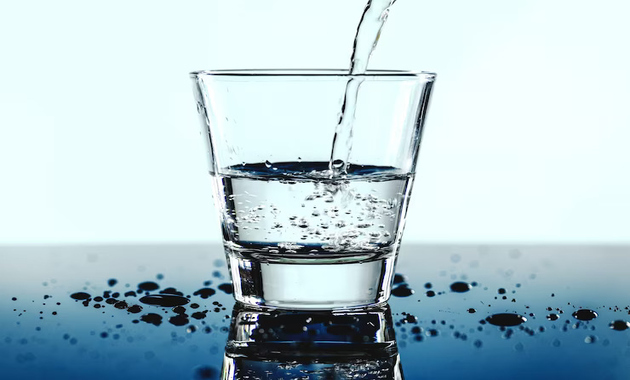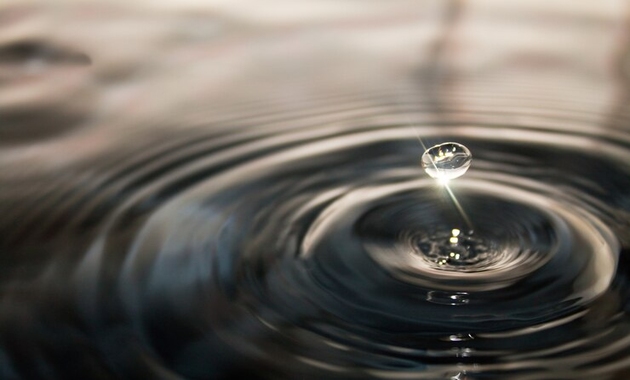Is Your Water Hard? How to test hard water – 2 Tested Methods

Do you want to know how to test hard water? Well, it’s easy now as there are multiple ways to do that as it’ll give you satisfaction and confirmation of whether you can wash your clothes in it or not.
However, if you’re facing problems in testing the hard water at home or don’t know the procedure, then you can simply contact Love2laundry for their laundry services to make sure your clothes are washed by experienced individuals.
2 Tested Methods – How to test hard water
If you’re looking for how to test hard water, then there are two of the most effective procedures: the soap test and the water spots test, it’ll let you know whether the water is perfect for your clothes or not.
So, without any further delays, let’s have a look at the first method for hard water testing:

Method 1: The Soap Test
The first method everyone must use is the soap test method as it’ll give you an ideal result for how to test water hardness. Just add soap to the water, if the minerals in the water do not make bubbles while in contact with the chemicals of soap then it’s hard water and if it makes bubbles then it’s soft water.
So, let’s have a look at the step-by-step guide:
Step 1: Fill the Bottle
The first step for the water hardness test is to fill up the water in a jar or bottle and remember to fill only 1/3 part of the bottle because filling up more than that will overdo the job.
One more thing is that you don’t need to gather filter water, you can simply fill up your bottle from the faucet as well for about 8 to 10 ounces.
Step 2: Add Soap
Now that you’ve filled up the bottle, now comes the second step which is to add dishwashing soap. Start by adding 10 drops of liquid soap and make sure it’s pure and not a detergent.
Then, wait for at least 10 seconds, if the bubbles start to form, then it’s soft water, and if it does not make bubbles, then it’s hard water. So, make sure to remember this step for water hardness measurement.
Step 3: Shake It Up
After adding liquid soap to the bottle, start shaking it up for several seconds to let the soap completely dissolve in the water so you can easily check whether the water is hard or soft.
Step 4: Observe the Bubbles
Now that you’ve completed all the above steps, sit back and observe the reaction of it. Keep a close eye on the bubbles forming which will show you the hardness of water.
Keep in mind that the more the bubbles are formed it indicates that the water is soft and if no bubbles or least bubbles are formed, then it shows that it’s hard water. To be more certain, this observation of bubbles plays a crucial role for how to check the hardness of water.
Method 2: The Water Spots Test
There’s another step for hard water testing called water spots test which revolves around the process of how long the water has stayed on the fabric or how much time it’s taking to evaporate. So, let’s see how to test hard water:

Step 1: Collect Some Water
If you’re conducting a water spots test for how to test hard water, then simply start with collecting water in a bowl or a bucket and just keep in mind that you don’t need to gather filter water, you can use the tap water as well.
Just remember that this step is the most crucial one as the whole method of the water spot test depends on it. The more the mineral water contains the heavier it’ll be.
Step 2: Evaporation
Turn the flame on put the steel bowl filled with water on it and let it set for some time to let the water heat up and start the process of evaporation. If the water starts to evaporate quickly, it represents that the water is soft but if it takes time during the process of evaporation, it means that it’s hard water.
Step 3: Examine Residue
People most often search for how hard is my water to determine whether it’s perfect for washing their clothes or not and for that, you must be certain to follow the above two steps before this one.
It means that after the process of evaporation, you need to examine the residue which will indicate the hardness of water. If the amount of residue is more, then it’s hard water, otherwise, it’s soft water.
How hard water affects your laundry
If you’re living in an area where you only get hard water, then it’ll hurt your laundry which can:
- Turn your white and clean garments into yellow and grey after the wash.
- Gives your fabric a stiff and hard feel when you wear it.
- Soil starts to build up on your clothes.
- Ruins your coloured and dark clothes by making grey or white streaks.
- Damage the durability of the fibres of your clothes which can be torn apart easily.
What to Do If You Have Hard Water
If you’re tired of getting hard water while showering or washing your clothes, then the best option to save your clothes, skin, and hair is to purchase a water softener which will make sure that you get soft water every time you do laundry.
Expert tips to make your water soft
Start by Boiling the Water
If you want to see expert tips for how to test hard water to make it soft, then make sure to read the following:
The first and most easy step how to testing hard water is to start boiling it, it’s not an authentic tip, but it can provide you with a temporary result. Just remember that if the water coming into your house is permanently hard, then there’s no point in testing the water.
If you want, you can buy a water testing kit to measure the hardness of water before and after boiling but always keep in mind that the boiling process is only ideal for temporary use.
Use Baking Soda
You might be unaware of it, but using baking soda to determine the hardness of water is the tip you must follow. If you’re thinking how it works, it’s simple. Fill up your bathtub with water and add ½ cup of baking soda to it.
Although the water does not get soft completely, but has an alkaline nature, it changes the pH level of hard water which will make the water soft and can be ideal for skin and hair.
Apply Apple Cider Vinegar
Another handy tip for how to test hard water is the use of apple cider vinegar as it’ll keep you safe from the after-effects of showering in hard water. To test the process, take a bottle filled with hard water and add two tablespoons of apple cider vinegar to it.
Apple Cider Vinegar is highly acidic which would not harm your skin or hair and is perfect for removing the buildup left behind by hard water. You can also add apple cider vinegar while taking a bath and don’t get irritated by the foul pungent smell, it’ll go away after some moment.
Get a Water Softener System
There’s another amazing tip for water hardness test which is to install a water softener system and the best part of using it is that it removes even the permanent hardness of water.
If you want, you can choose between an ion-exchange water softener and a water conditioner, also known as a salt-free system. Make sure to read all their features and then buy it.
Shower Head and Hard Water Filter
If you want to see the authentic results for how to test hard water, then having a shower head and hard water filter at your home is the tip you must note down in your list.
You can even install this system in your showers so whenever you take a bath, you’ll get soft water directly as the hard water filter will make sure to clear all the minerals from the hard water which will protect your skin and hair from the after-effects.
Wrap Up
There’s no doubt that hard water has a negative impact whether it comes to washing your laundry or taking a shower. However, there are some authentic methods available for how to test hard water to protect the quality of your fabric.
You can install a fabric softener system at your home, but if it feels costly then you can try other procedures as well like boiling hard water, using baking soda, apple cider vinegar, and even examining the amount of residue after the process of evaporation.
FAQs
How do you test hard water at home?
There are many ways you can use to test hard water at home which are easy as well such as:
- Soap test
- Water hardness strips
- Water testing kits
- Boiling test
How do I know if I have hard water?
If you want to be certain that whether you have hard water or not then you can simply apply it on leather fabric which will give you a sticky feeling, do a spot test on dishes and glass products, and if you’ll apply hard water on your skin, then it’ll make it dry.
How do you soften hard water?
Well, the easiest way to soften hard water is to simply install a water softener at home as it uses a process of ion exchange which will replace magnesium and calcium ions with potassium and sodium ions resulting in providing you with clean and soft water.
How does hard water affect my laundry?
If you don’t take precautions against hard water when doing laundry, then it’ll damage the quality of your clothes badly like dull and faded structure, residue on your clothes, and less fabric life if you’re having trouble going through all these steps, then you can simply contact Love2Laundry and hire their laundry service.


